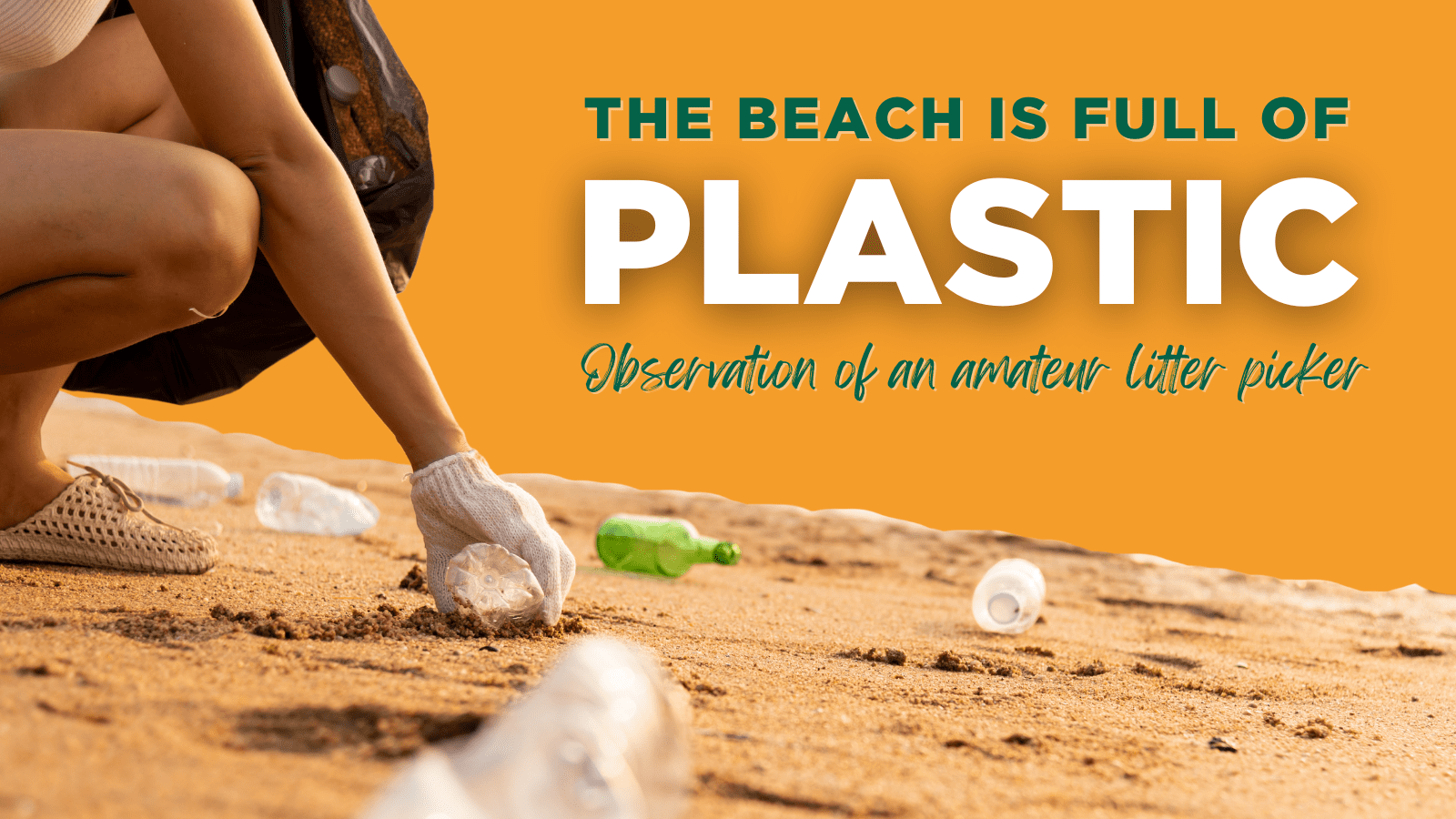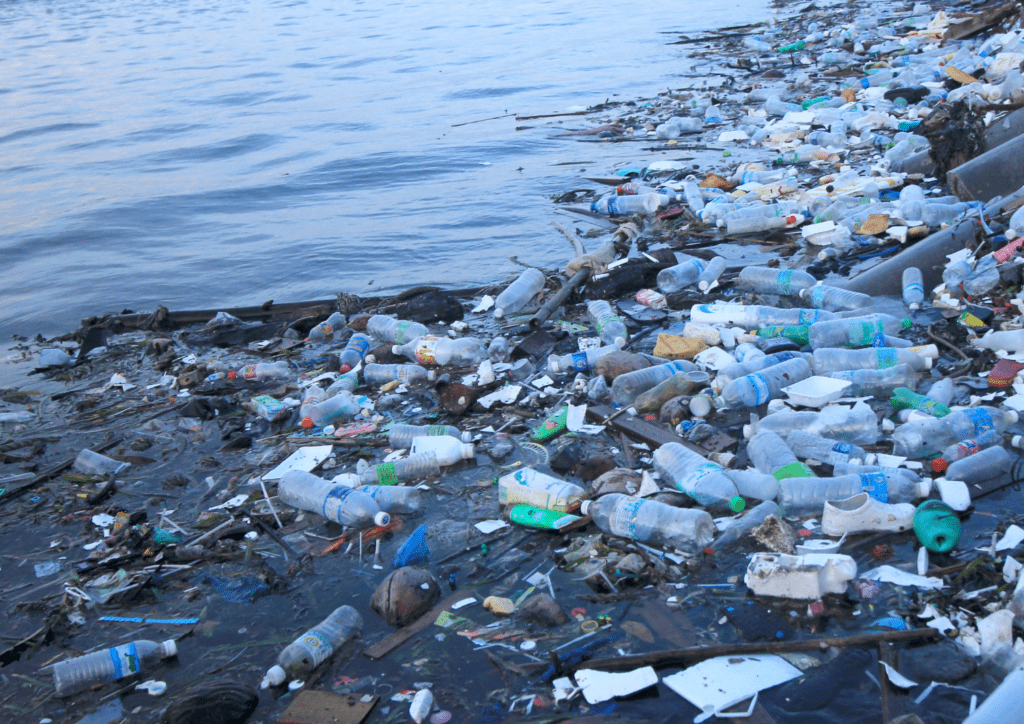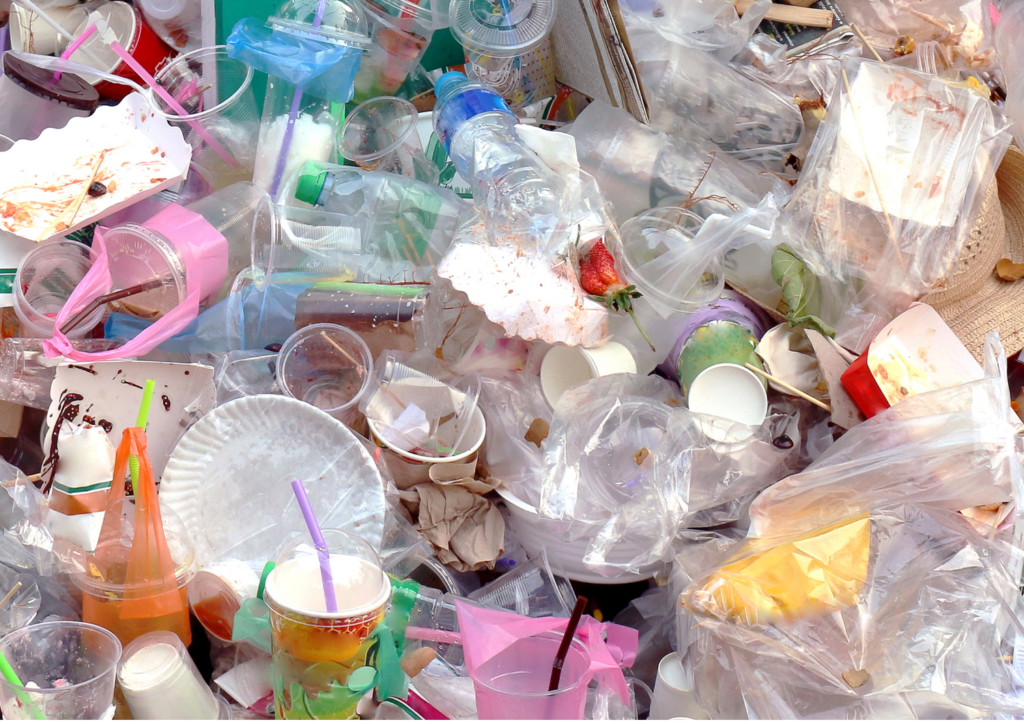As a person who has always cared about the environment, I have been fortunate to stumble upon a small, manageable action that has led to opportunities to spread awareness about the issue of plastic pollution on our beaches. Because plastic is definitely there and we all need to pull together to help stop it.
In April 2021, I became a regular garbage picker along the shore of Lake Huron in South Western Ontario. My initial plan was to collect a bag of garbage per day that month as an expression of love and gratitude for our Earth and Lake Huron. The one-month adventure has turned into a passion and now I can’t go anywhere without picking up garbage!
This simple activity has provided a “hands-on” opportunity to do a lot of thinking and learning. The biggest revelation has been the inordinate amount of plastic pollution in the environment. We live in a “throwaway” culture. But there’s a problem: garbage, and especially plastic, never really goes away. All of our garbage has to go somewhere, regardless of whether we dispose of it in the appropriate place, or carelessly toss it on the ground.
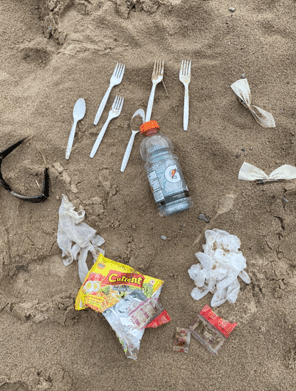
Plastic litter at the beach
For the most part, the beaches in this area appear to be relatively “clean”. However, there is a large problem with litter, thoughtlessly tossed on the ground. Although extremely annoying, this type of waste is relatively easy to see and pick up.
Much more difficult to find are the numerous, degraded bits of plastic, hidden in the sticks and natural debris found along the shore. Since these plastics are not immediately apparent, it is easy for people to miss the extent of our problem with plastics in the environment.
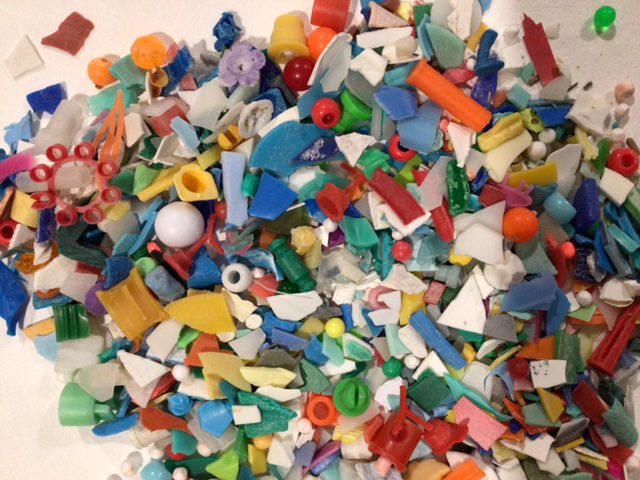
Most common plastic litter finds
After picking up 1100 grocery-size bags of garbage, here are the top picks – and most are some form of plastic:
- Packaging: water bottles, other drink containers, caps, styrofoam plates, plastic cutlery, take-out containers – including cups and lids, food wrappers – including chip bags, individually wrapped cheese strings, candy wrappers, single-use condiment packages, yogurt tubes
- Cigarette butts, cigarillo tips
- Construction materials, Big O drainage tiles, erosion control fabric, styrofoam insulation
- Beach gear, sunglasses, goggles, sandals, socks and cheap plastic beach toys
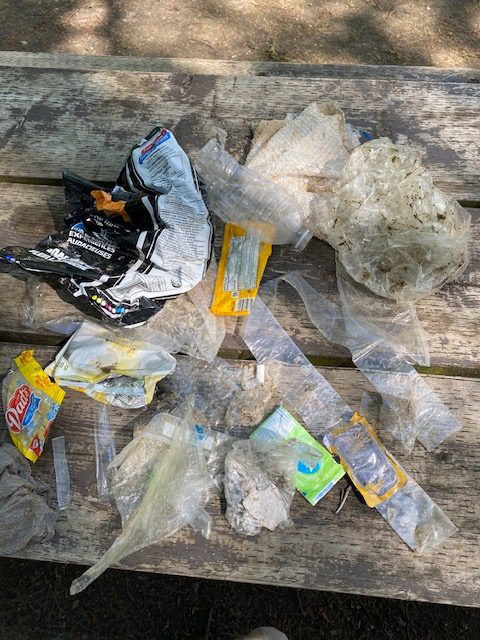
Helium balloons have become a focal point for me. I have found 1700 balloons along a very small section of Lake Huron’s 6159 km total shoreline. Balloons and their attached or unattached ribbons are problematic for many reasons. They pose a danger to wildlife through ingestion and entanglement. Not to mention the fact that helium is a finite resource of great importance in space exploration, medicine and MRI machines—why are we wasting it?
Sadly, the list of finds could go on and on and on. Since the single-use plastic ban of 2022, I have noticed fewer plastic bags, straws and cutlery in the environment, although I still find a few each week. That’s why we need to keep up the pressure on elected officials to ensure this ban remains in place–and even add to it. Helium balloons and disposable coffee cups and lids should be top of the list.
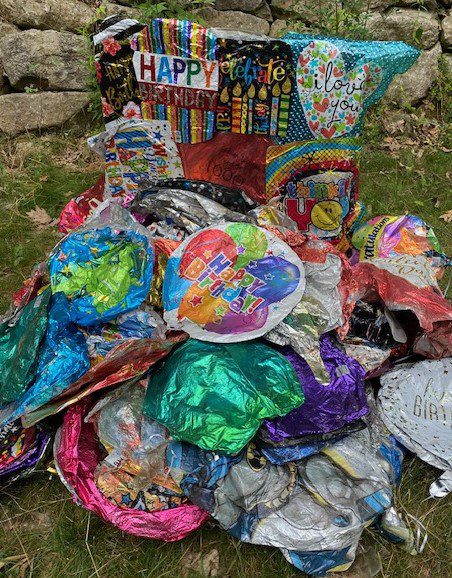
Beyond picking up litter, what else can we do to fight plastic pollution?
Let’s be honest, there is a lot of work to be done to address the issue of plastic pollution. As individuals, there are many ways to reduce our plastic use. However, individuals alone cannot solve the enormous problem of plastic in our environment, including in our bodies. There has to be an investment in systemic change from all levels of government, plastic producers and grocery stores. And we can use our voices to demand it.
Perhaps, it is easier to start with our own actions. I do believe that individual actions matter, although I have no illusions that picking up plastic and litter at the beach will have any long-term impact. But, our actions do have the potential to ripple out and affect the thinking of others.
If you’re looking for some advice from an amateur beach picker, here it is:
Start small, start with something simple, and start with something that inspires your passion. Chances are, you will be amazed at what comes from your simple plan!



